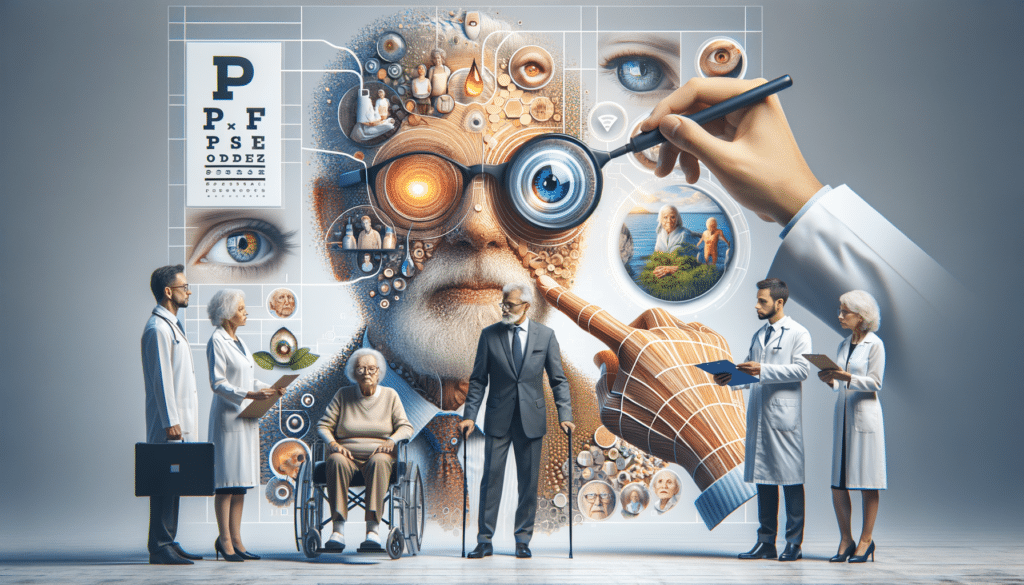Understanding the Importance of Vision Tests for Seniors
As we age, our bodies undergo numerous changes, and our eyes are no exception. Vision tests for seniors become increasingly important to ensure that any age-related eye conditions are identified and managed effectively. Regular eye examinations can help detect issues such as cataracts, glaucoma, and macular degeneration, which are more prevalent in older populations. These conditions, if left untreated, can significantly impact a senior’s quality of life, leading to difficulties in performing daily activities, increased risk of falls, and even social isolation.
Moreover, vision tests can also reveal other health issues that may not be directly related to the eyes. For instance, diabetes and high blood pressure can be detected through comprehensive eye exams, as these conditions often manifest signs in the eyes before other symptoms become apparent. Therefore, regular vision tests not only help in maintaining eye health but also serve as a preventive measure for overall health.
Key reasons for regular vision tests include:
- Early detection of eye diseases: Conditions like glaucoma and cataracts can be managed more effectively if caught early.
- Prevention of vision loss: Regular check-ups can help prevent irreversible vision loss by addressing issues promptly.
- Monitoring overall health: Eye exams can reveal symptoms of systemic diseases like diabetes.
Common Vision Problems in Seniors
Seniors are susceptible to a range of vision problems due to the natural aging process. One of the most common issues is presbyopia, a condition where the eye’s lens loses flexibility, making it difficult to focus on close objects. While presbyopia is a natural part of aging, other conditions require more attention and care.
Cataracts, for instance, occur when the lens of the eye becomes cloudy, leading to blurred vision. This condition is prevalent among seniors and can be effectively treated with surgery. Glaucoma, another common issue, involves increased pressure in the eye, which can damage the optic nerve and lead to vision loss if not treated. Macular degeneration, which affects the central part of the retina, is also a significant concern as it can lead to loss of central vision.
Understanding these conditions and their symptoms is crucial for seniors and their caregivers. Regular vision tests help in identifying these problems early, allowing for timely intervention and management.
Noteworthy vision issues include:
- Presbyopia: Difficulty focusing on close objects.
- Cataracts: Clouding of the eye lens, leading to blurred vision.
- Glaucoma: Increased eye pressure damaging the optic nerve.
- Macular Degeneration: Deterioration of the central retina affecting central vision.
Types of Vision Tests for Seniors
Various vision tests are specifically designed to assess the different aspects of eye health in seniors. A comprehensive eye exam typically includes several tests to evaluate visual acuity, eye pressure, and the health of the retina and optic nerve.
The Snellen chart test is commonly used to measure visual acuity, determining how well a person can see at various distances. Tonometry tests are used to measure the pressure inside the eye, which is crucial for detecting glaucoma. Additionally, retinal imaging allows ophthalmologists to examine the retina and optic nerve closely, helping to identify issues like macular degeneration and diabetic retinopathy.
These tests are not only diagnostic but also provide a baseline for monitoring changes in vision over time. Regular eye exams ensure that any changes in vision are tracked and managed appropriately, helping seniors maintain their independence and quality of life.
Essential vision tests include:
- Snellen Chart Test: Measures visual acuity.
- Tonometry: Assesses eye pressure for glaucoma detection.
- Retinal Imaging: Examines the retina and optic nerve for signs of disease.
How to Prepare for a Vision Test
Preparing for a vision test can help ensure the process is smooth and effective. Seniors should bring their current eyeglasses or contact lenses, a list of medications they are taking, and any questions or concerns they have about their vision. It’s also helpful to have a record of previous eye exams and any family history of eye diseases, as this information can be valuable for the eye care professional.
During the test, seniors should feel comfortable communicating any changes or symptoms they have noticed, such as difficulty reading or driving at night. This information can help the eye care professional tailor the examination to the individual’s specific needs.
Preparation tips include:
- Bring current eyewear: Ensure your prescription is up-to-date.
- List medications: Some medications can affect vision.
- Note symptoms: Share any changes or concerns with the eye care professional.
Maintaining Eye Health Beyond Vision Tests
While regular vision tests are crucial, maintaining overall eye health requires a proactive approach. Seniors can adopt several lifestyle changes and practices to support their vision health. A balanced diet rich in vitamins and minerals, particularly those found in leafy greens and fish, can support eye health. Omega-3 fatty acids, lutein, and zeaxanthin are particularly beneficial for maintaining healthy eyes.
Additionally, protecting the eyes from harmful UV rays by wearing sunglasses and hats when outdoors can prevent damage to the eyes. Smoking cessation is also important, as smoking increases the risk of developing eye diseases such as cataracts and macular degeneration.
Regular exercise and managing health conditions like diabetes and hypertension contribute to eye health by improving blood circulation and reducing the risk of vision-related complications. These proactive measures, combined with regular vision tests, can help seniors maintain optimal eye health and quality of life.
Key practices for eye health include:
- Balanced diet: Include foods rich in omega-3s, lutein, and zeaxanthin.
- UV protection: Wear sunglasses and hats outdoors.
- Avoid smoking: Reduces risk of eye diseases.
- Regular exercise: Enhances blood circulation and overall health.





